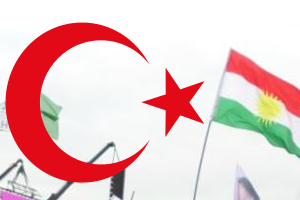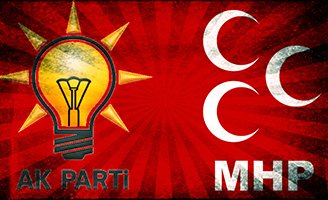The Case for a Coalition with the CHP: the AKP Needs to Refurbish Its Image in the West
By Halil Karaveli (vol. 8, no. 14 of the Turkey Analyst)
The AKP’s loss of its absolute majority in the June 7 parliamentary election may paradoxically offer the regime the chance to refurbish its tarnished image in the West. That, at least, is how some of the leading representatives of the regime judge the present situation. A coalition government with the center-left CHP is perceived as a chance for the AKP to rid itself of the charges of authoritarianism. Western endorsement has always been critically important for AKP, and the party is desperate to regain its lost legitimacy in the West. The question, though, is why the CHP would even contemplate lending itself to a project that would only entrench the AKP regime.

Turkey’s Kurds and the Post-election Political Landscape
By Gareth Jenkins (vol. 8, no. 13 of the Turkey Analyst)
The Turkish general election of 7 June stripped the ruling Justice and Development Party (AKP) of its parliamentary majority for the first time since November 2002 and dealt a devastating blow to President Recep Tayyip Erdoğan’s hopes of replacing the country’s parliamentary system with an autocratic presidential one in which all political power was concentrated in his own hands. But, even though the election was an undoubted triumph for the pro-Kurdish Peoples’ Democratic Party (HDP), it has also left the Kurdish nationalist movement facing a number of challenges.

What the Columnists Say
Abdülkadir Selvi in Yeni Şafak reports that Turkey is determined to take action in Syria if the PYD expands to the west of the Euphrates, taking control of Jarabulus, but that this does not mean that Turkey is about to go to war. Özgür Mumcu in Cumhuriyet writes that Turkey is dreaming about a military operation that is internally marketed as an operation against PYD, while it is externally marketed as something that supposedly targets ISIS. Orhan Kemal Cengiz in Bugün writes that the question after the election was if Erdoğan was going to interpret the results as a no to the proposed, unlimited powers of the presidency or as a “road accident,” and concludes that it’s now business as usual for the president. Orhan Bursalı in Cumhuriyet writes that it is very difficult for AKP to accept that the party has lost the possibility to form a majority government on its own, and that the party and the “Mighty” – Erdoğan – intends to never relinquish power. Candaş Tolga Işık at the Habere Dikkat news site writes that handing the seat of the speaker of the parliament to AKP as a gift, only because MHP is unable to curb its hatred of HDP, is going to be the undoing of the party.

Turkish Democracy Is Not Out of the Woods
By Halil Karaveli (vol. 8, no. 12 of the Turkey Analyst)
The immediate effects of Turkey’s June 7 election was that the ruling Justice and Development party (AKP) lost its majority and President Erdoğan was forced to put his plans for a presidential system on hold, at least for the moment. Yet the prospects for Turkish democracy are not necessarily any brighter today. The most likely outcome is a coalition between the AKP and the rightist Nationalist Action Party (MHP). That is the preferred outcome for “conservative” business interests, who challenge “secular” business interests and want to continue to use state power to get their hands on a bigger share of capital. Their interests ensure that the AKP will remain on its confrontational track; that is the principal dynamic behind Turkey’s drift toward authoritarian rule, and it is far from having been halted.

What the Columnists Say
Etyen Mahçupyan in Akşam writes that the common sense of Erdogan demonstrates that Turkey is moving toward democracy thanks to the AKP, in spite of its deficient democratic tradition. Güray Öz writes in Cumhuriyet that weakening and neutralizing the AKP power is not going to be an easy task, and that those who have conquered the state are not going to relinquish power just because they lost their majority in the election. Aydın Engin in Cumhuriyet argues that the AKP simply cannot abandon power, first because the party has committed war crimes in Syria and would face the consequences if it were to surrender government power, and second because the moneyed interests that have prospered during its reign and who depend on its power would not allow it to step down. İbrahim Karagül in Yeni Şafak writes that the same international will that ended democracy in Egypt is now scheming to oust AKP from government, but that AKP is Turkey's backbone and that the forty one percent are never going to surrender.






